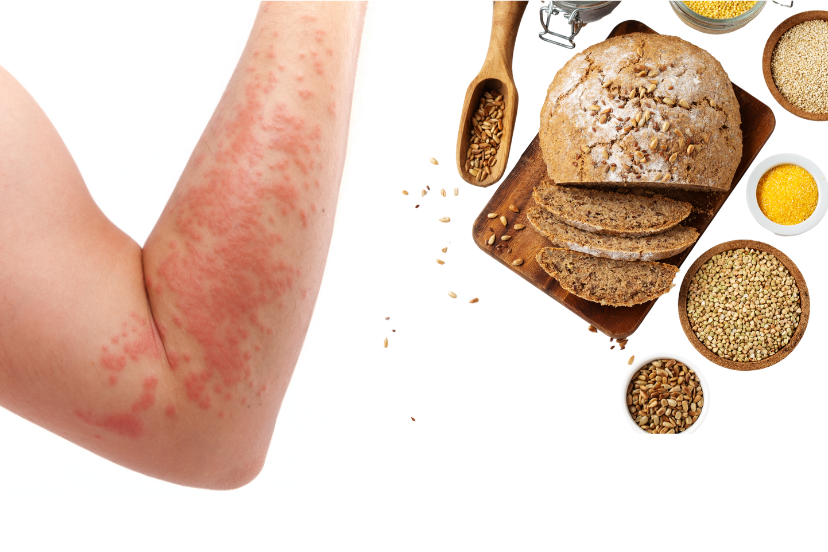Lupus and Gluten Intolerance: Understanding the Connection
Introduction: Exploring Lupus and Gluten Intolerance
Lupus and gluten intolerance are two distinct health concerns that share a complex relationship. Understanding how these conditions intersect can empower individuals to make informed choices regarding their health and well-being. In this comprehensive guide, we delve into the nuances of these conditions, shedding light on their connection and offering practical insights for managing symptoms.
Defining Lupus
Lupus, or systemic lupus erythematosus (SLE), is an autoimmune disease characterized by inflammation and damage to various organs and tissues in the body. Common symptoms include joint pain, fatigue, skin rashes, and fever.
Understanding Gluten Intolerance
Gluten intolerance, also known as gluten sensitivity or non-celiac gluten sensitivity, refers to a condition in which individuals experience adverse reactions to gluten, a protein found in wheat, barley, and rye. Symptoms may include abdominal pain, bloating, diarrhea, and fatigue.
The Interplay Between Lupus and Gluten Intolerance
Shared Symptoms
Both condition can manifest with overlapping symptoms, such as gastrointestinal issues, fatigue, and joint pain. This overlap can sometimes make it challenging to differentiate between the two conditions.
Impact on Inflammation
Gluten intolerance has been linked to increased inflammation in the body, which can exacerbate symptoms of lupus and contribute to disease flares. Adopting a gluten-free diet may help reduce inflammation and improve overall well-being for individuals with lupus.
Managing Lupus and Gluten Intolerance
Adopting a Gluten-Free Diet
For individuals with these conditions, eliminating gluten from the diet may alleviate symptoms and improve overall health. Focus on incorporating gluten-free alternatives such as quinoa, rice, and gluten-free oats.
Prioritizing Nutrient-Rich Foods
A balanced diet rich in fruits, vegetables, lean proteins, and healthy fats can support immune function and reduce inflammation. Incorporating nutrient-dense foods can help manage symptoms.
Seeking Medical Guidance
Consulting with healthcare professionals, including rheumatologists, gastroenterologists, and registered dietitians, can provide personalized guidance and support for managing lupus and gluten intolerance effectively.
FAQs: Addressing Common Concerns
1. Can lupus cause gluten intolerance?
While lupus itself does not cause gluten intolerance, individuals with lupus may be more susceptible to developing gluten intolerance due to underlying immune system dysregulation.
2. Is there a link between celiac disease and lupus?
While celiac disease, an autoimmune condition triggered by gluten consumption, and lupus are distinct conditions, individuals with autoimmune diseases like lupus may have a higher risk of developing celiac disease.
3. Can a gluten-free diet improve lupus symptoms?
Some individuals with lupus may experience symptom improvement with a gluten-free diet, particularly if gluten intolerance exacerbates inflammation and contributes to disease flares.
4. What gluten-containing foods should individuals with lupus avoid?
Individuals with lupus and gluten intolerance should avoid foods containing wheat, barley, and rye, including bread, pasta, cereal, and baked goods, unless they are labeled gluten-free.
5. Are there alternative treatments ?
In addition to dietary modifications, individuals with these conditions may explore complementary therapies such as acupuncture, meditation, and herbal supplements to support overall well-being.
6. Can lupus and gluten intolerance coexist?
Yes, both can coexist in some individuals. Managing both conditions requires a comprehensive approach that addresses dietary factors, symptom management, and overall health.
Conclusion: Navigating the Journey
Navigating the complexities of lupus and gluten intolerance requires patience, diligence, and a proactive approach to health management. By understanding the connection between these conditions and implementing targeted strategies for symptom relief, individuals can embark on a path towards improved quality of life and well-being. Stay informed, stay empowered, and prioritize self-care on your journey towards wellness.




